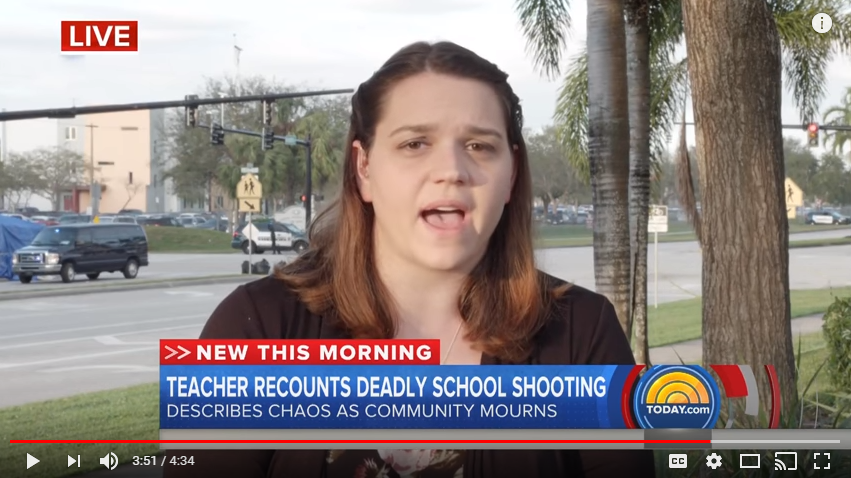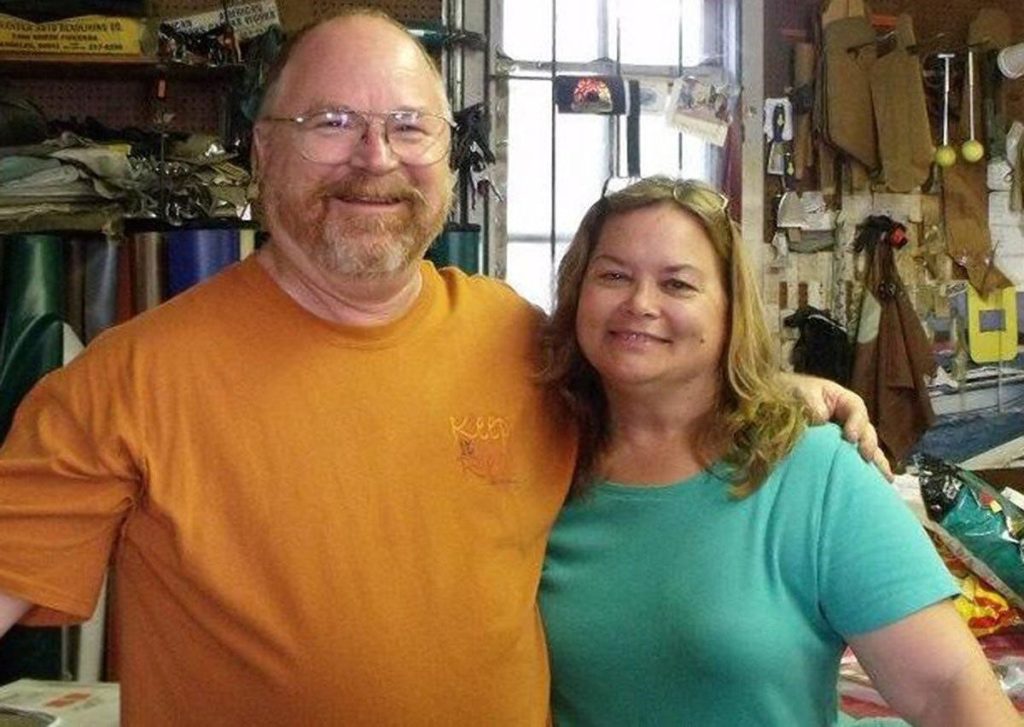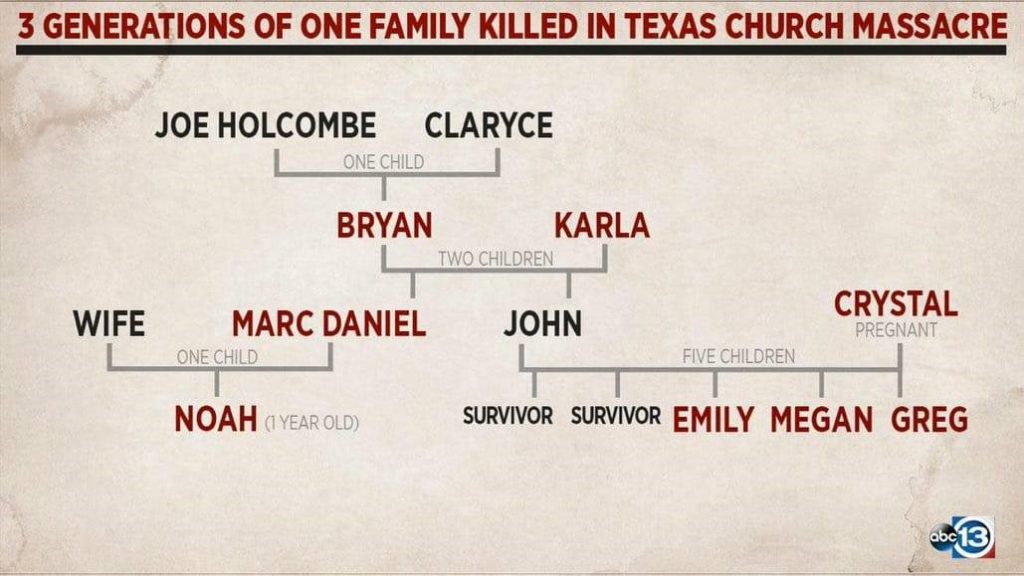If you liked this post, say thanks by sharing it.
By Larry Short, Community Ministry Director
“It just makes no sense. It’s like an asteroid.”
Stephen Paddock’s brother, Eric, stood in front of the media and groped for words as they asked him to explain why his brother had just unloaded a hail of thousands of bullets into a crowd of concertgoers in Las Vegas, killing at least 59 and injuring more than 500, in the United States’ worst mass shooting.
But asteroids are (more or less) random. People who kill dozens of people with guns and injure hundreds more are not. Reasons exist. Everyone knows this, so law enforcement and media are currently in something of a frenzy seeking to explain why a quiet, unassuming person such as Paddock would go off the deep end and do the unthinkably horrible thing that he did before taking his own life.
He was suicidal; that part’s clear. But it still doesn’t explain why a suicidal person would seek to take so many innocent people with him.
Like all of us, I think my first emotion upon hearing the news reports was a sickening sense of grief. How could such a thing happen? And my own emotions are compounded by knowing one of the victims, an LA County Sheriff deputy who worked with me at World Vision a number of years ago. (A bullet lodged very near his spine, and doctors are currently evaluating whether or not they can remove it safely. Please pray for Andrew and his family!)
The last time I remember feeling this way was in March 2015, when Germanwings Flight 9525 copilot Andreas Lubitz deliberately crashed his jetliner full of 149 innocent people and himself into a remote mountainside in France.
A Time for Reflection
I’ve learned to try to put the emotions associated with such events in a certain compartment in order to examine the facts as best I am able, interpreted by the media, of course, and from my rather inconvenient spot in my comfy chair here in front of my computer. But the importance of careful reflection on such events cannot be underestimated. I’m not talking about figuring out how to prevent such tragedies, which is not necessarily up to people like me, but rather, deeper questions. Questions such as: Why do seemingly “normal” people commit such horrific, senseless atrocities? If you eliminate the obvious possible motivations (such as terrorism, greed, anger, revenge, etc.), what are you left with?
One popular materialistic explanation is mental illness. He must have been insane. But in this case, there doesn’t seem to be any apparent history of mental illness. His friends and relatives all thought of Paddock as a “normal, regular guy. Just a guy.” And the methodical way he planned and executed his attack also is causing experts to question the mental illness hypothesis.
What then? The materialistic explanations are running out.
More Things in Heaven and Earth
And this is what should bother thinking people about the materialistic society in which we live. As Shakespeare famously penned, “There are more things in heaven and earth, Horatio, than are dreamt of in your philosophy.”
We don’t like to consider the possibility that there are dark spiritual forces at work among us. For many people, watching movies such as The Exorcist falls into the category of “entertainment.” I was fascinated by this introduction on the site Ranker, on their page listing “the best demonic possession movies”:
There’s nothing more horrifying than watching a movie about a person who’s possessed by a demon. What is it about the thought of demons, supernatural visitations, darkness, and evil that fascinates human beings so much? We must love it, as there are tons of wildly successful films where characters are possessed by demons.
I would suggest another explanation behind our fascination: it rings true. At Biola, I knew a professor of missions who had spent many years in South American countries. He had a reputation there (which surprisingly followed him to Southern California) as a (somewhat reluctant) exorcist. He was even called to one of the girls’ dorms at our college late one night, where he cast a demon or demons out of a student who was very troubled, changing the course of her life dramatically for the better. Darlene was a witness to this event, and as the campus newspaper editor, I did an extensive interview with Dr. Murphy in which he shared the details of many of his fascinating experiences with demonic forces both in South America and in the United States.
The challenge in this country, he acknowledged, was that in our materialistic society we oftentimes don’t believe that Satan or his demonic forces are real. Even in our churches, we frequently shy away from things such as this, things that transgress the boundaries of the “ordinary” into areas we can’t materialistically explain.
However, the Bible observes no such boundaries. Christ’s interactions with demonic forces were numerous and dramatic, as were those of the apostles who followed Him. The Bible certainly agrees with Shakespeare: “There are more things in heaven and earth . . .”
But Light Overcomes Darkness
And while we might find this truth frightening, if we reflect further and more deeply it should also be of great encouragement to us. For, if there are Evil Forces at work, there must also be forces at work for Good! And what do we apprehend (in faith) about those Forces for Good?
Beloved, do not believe every spirit, but test the spirits to see whether they are from God, for many false prophets have gone out into the world. By this you know the Spirit of God: every spirit that confesses that Jesus Christ has come in the flesh is from God, and every spirit that does not confess Jesus is not from God. This is the spirit of the antichrist, which you heard was coming and now is in the world already. Little children, you are from God and have overcome them, for he who is in you is greater than he who is in the world. (1 John 4:1-4)
There are a couple important things to note about the truths revealed in these verses. First, even though I have been speaking (as if I were Luke Skywalker) about “Evil Forces” and “Good Forces,” the truth is that there is a person (or persons) behind all such forces. Force is wielded by personality. And these persons (in this case, the “spirits” of whom John speaks) have goals.
The first goal John speaks of is to convince us to believe their narrative of truth. Our community group is currently studying C. S. Lewis’s brilliant work of fiction, The Screwtape Letters, which postulates what it would be like to be privy to a conversation between a senior tempter and his demonic trainee. Lewis offers this fascinating insight that highlights the demonic strategy:
There are two equal and opposite errors into which our race can fall about the devils. One is to disbelieve in their existence. The other is to believe, and to feel an excessive and unhealthy interest in them. They themselves are equally pleased by both errors and hail a materialist or a magician with the same delight.
So, the demons themselves wish for us to either not believe in them at all (the materialistic viewpoint) or to believe in them wholeheartedly and fear them and structure our lives around that fear.
And, if you take the words of these verses (“for He who is in you is greater than he who is in the world”) out of the equation, it makes sense that so many nonmaterialistic societies have feared and worshiped demonic forces, for the primary goal of those forces is stated by Christ Himself, and it is bad news indeed:
The thief comes only to steal and kill and destroy. I came that they might have life and have it abundantly. (John 10:10)
In Christ’s parable, “the thief,” of course, is the prince of demons himself, Satan. Satan exults in taking what is not his, in robbing God of His glory and creation, in killing, in destruction. Fearful power.
But juxtaposed against this fearful power is an even more awesome power wielded by Christ, the “greater is He that is in you,” the One who came that we might have life, and abundantly. While we mustn’t make the mistake of not believing in the existence of demonic forces, we must simultaneously hold a realistic view of their relative impotence. They can only go “thus far, and no further,” as God permitted Satan to afflict Job. They can only act in accordance with God’s permissive purposes, which are greater than we can possibly understand.
The Cross: The Ultimate Test of Power
And the foremost example of this is the Cross of Christ, the greatest tragedy of human history, sinful human beings unjustly condemning the sinless Son of God to an untimely, gruesome death. But then the pinnacle achievement of Satan, killing the very Son of God, was turned on its head by the power of God (manifested in the resurrection of Christ) into the pinnacle achievement of He who is greater than! This is the power of God. And it is a power we can be confident will overcome the very worst attacks of the evil one and his minions, be they Islamic terrorism or mass murder of innocents or the opioid epidemic or even the brutal slaughter of millions of innocent unborn.
None of us know, ultimately, how the actions of a person such as Stephen Paddock will be explained. But what we CAN know is this: while Satan is real, and powerful, and we are not unaware of his schemes, we have a God who is also real, and far more powerful, and has purposes that we will someday comprehend and that will cause us to drop down and worship Him!
So, I know it sounds trite to say, “Keep the faith!” at times like this … but I believe it is exactly what God would want us to do. In the face of immense tragedy and suffering, we must reflect on His greater purposes and keep the faith. Amen?
Views – 249
If you liked this post, say thanks by sharing it.

 Follow
Follow



